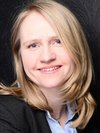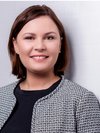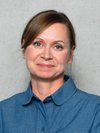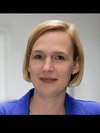

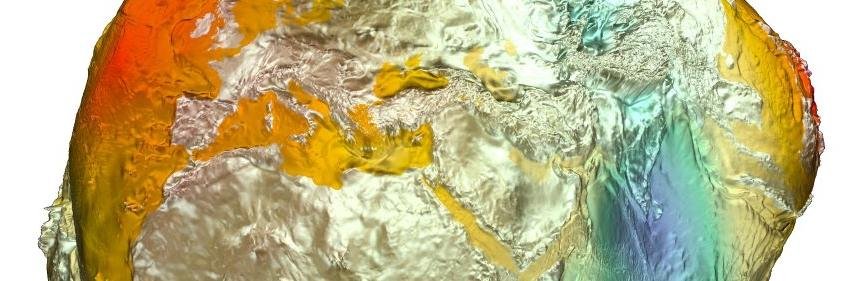
The Helmholtz Centre Potsdam - GFZ German Research Centre for Geosciences is the national centre for research into the geosphere. With around 1,650 employees, we develop a sound understanding of systems and processes of the solid Earth as well as strategies and options for action to counter global change, understand natural hazards and sustainably secure energy and raw material requirements.
Postdoctoral researcher (f_m_x) for GENESIS-D project
Reference Number 9895
Join us in an exciting opportunity to advance global space geodesy with cutting-edge technology!
The primary goal of ESA’s GENESIS satellite mission is to significantly improve global geodetic reference frames. These serve as a foundation for precise positioning and Earth monitoring and are determined using four space geodetic techniques: DORIS (Doppler Orbitography and Radio positioning Integrated by Satellite), GNSS (Global Navigation Satellite Systems), SLR (Satellite Laser Ranging), and VLBI (Very Long Baseline Interferometry). The GENESIS satellite will enable linking all four techniques on a single satellite platform (“co-location in space”).
Currently, this combination is achieved by linking station coordinates using "local ties" at specific co-location sites and by determining Earth Orientation Parameters as "global ties". However, the innovative GENESIS satellite will enable a new approach: linking all four techniques on a single satellite platform (“co-location in space”), offering a unique opportunity to achieve unprecedented precision and reliability.
Join a diverse and collaborative team. As a part of the GENESIS-D project, you will have the opportunity to lead realistic simulations using GFZ’s advanced EPOS (Earth Parameter and Orbit System) software for identifying and resolving systematic errors between the four techniques. Your work will help shaping the future of geodetic research by achieving the highest precision possible to support deriving a more accurate and stable TRF which meets the requirements of the Global Geodetic Observing System (GGOS).
Your responsibilities:
- Calculation of various orbits of the GENESIS mission which serve for simulation of systematic error-free observations of the four space geodetic techniques complemented by realistic noise model assumptions
- Analyze and evaluate real observations from existing ground and space segments, using them as valuable training data for the project’s simulations and contributing to a deeper understanding of the data
- Create reference solutions reflecting a realistic simulated current state of the ground and space segments, which is actually used for e.g. the determination of reference frames
- Integrate these reference solutions with simulated GENESIS scenarios to assess the impact of the GENESIS mission on a single technology or in combinations of up to all four techniques
- Investigate the influence of various systematic errors, such as disturbing forces or space tie errors, on orbit determination and the resulting reference frames, to develop strategies for enhancing the mission’s accuracy and stability
- Collaborate with colleagues in the GENESIS-D project group and contribute to the IAG (International Association of Geodesy) GENESIS working group on behalf of GFZ Potsdam
Your qualifications:
- University degree (Master, Diplom or equivalent) in geodesy, space engineering, astronomy or a related discipline
- PhD degree („PostDoc“) in a related discipline, or in progress. At the time of the application the PhD degree is not a requirement but it needs to be obtained soon after the beginning of the project. This can be demonstrated by a letter of support from the PhD supervisor, for instance
- In depth experience with orbit determination as well as simulation, combination and real data analysis of space geodetic data DORIS, GNSS, SLR and VLBI for improving TRFs, either proven by PhD topic, research projects or publications
- Familiarity with geodetic reference frames and knowledge of current developments in the field
- Strong proficiency in least squares adjustment (observation level) and linear algebra (normal equation level)
- Hands-on experience with data processing in Linux environments and shell scripting.
- Proficiency in programming languages such as MATLAB, FORTRAN, C++, C#, SQL, Python, scientific programming and HPC
- Good command of English (written and spoken)
- Ability to work independently, paired with a proactive mindset
- Strong team skills and a willingness to engage in a multidisciplinary team environment, actively collaborating with internal and external partners
What we offer:
- Ambitious and varied tasks in a dynamic and international research environment
- State-of-the-art equipment
- Public service benefits
- Extensive training opportunities
- Professional career advice offered by our in-house Career-Centre
- Flexible working hours and conditions
- Support with finding a good work-life balance offered by benefit@work
- Attractive location in Oberpfaffenhofen in proximity to the DLR
Fixed-term: 30.09.2027, with possibility of extension
Salary: The salary group is determined on the basis of the Collective Wage Agreement and the respective personal qualifications and may be classed up to salary group 13 according to “TVöD Bund (Tarifgebiet West)”
Working hours: Full-time (currently 39 h/week)
Place of work: Oberpfaffenhofen
Have we piqued your interest?
Diversity and equal opportunities are integral components of our human resources policy. The GFZ actively promotes diversity and explicitly welcomes applications from all qualified individuals, regardless of ethnic and social origin, nationality, gender, sexual orientation and identity, religion/belief, age and physical characteristics. Anyone who has been recognised as severely disabled, will be given preferential consideration in the event of equal suitability and qualification in accordance with the provisions of the German Social Code IX. If you have any questions, please contact our Representative Body for Employees with Disabilities at sbv[at]gfz-potsdam.de, who will be happy to assist you in the further application process. In case of further queries regarding gender equality, please do not hesitate to contact our Equal Opportunities Officer at gba[at]gfz-potsdam.de.
Your personal data will be processed for the purpose of conducting the selection procedure on the basis of Art. 6 para. 1 b, Art. 88 GDPR in conjunction with Art. 26 of the Data Protection Act for the State of Brandenburg. After completion of the procedure, application documents will be deleted in compliance with data protection regulations.


